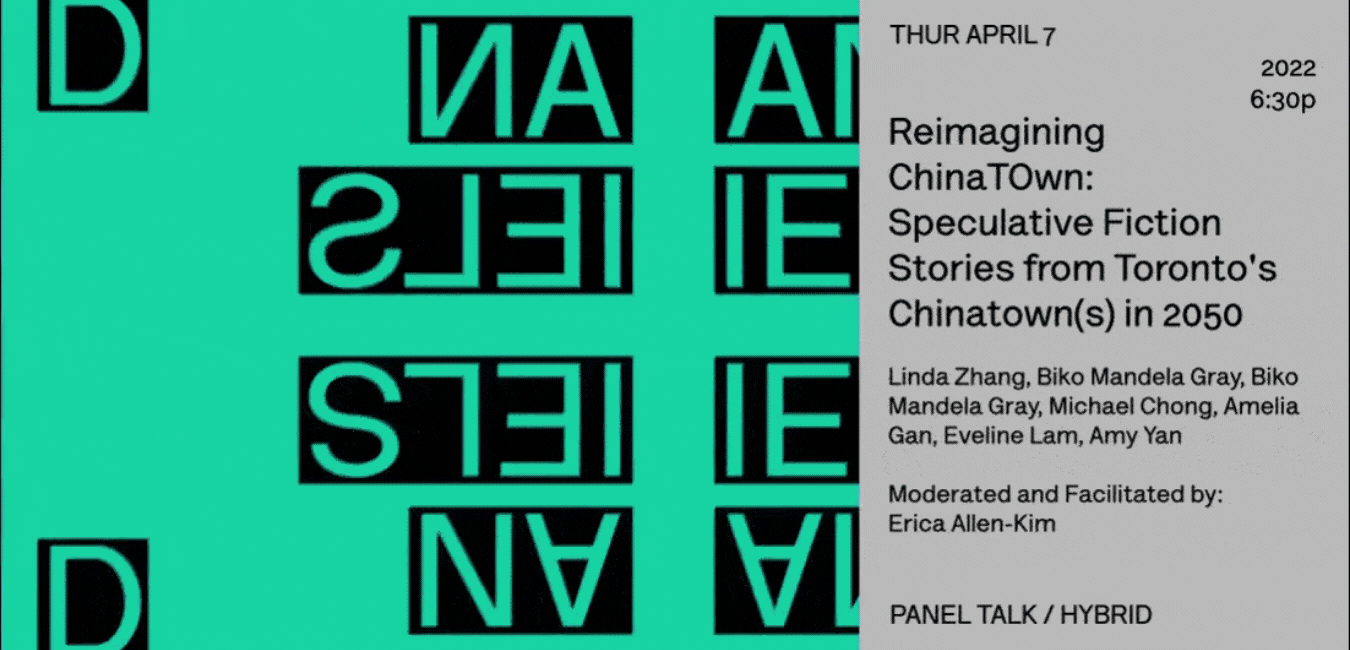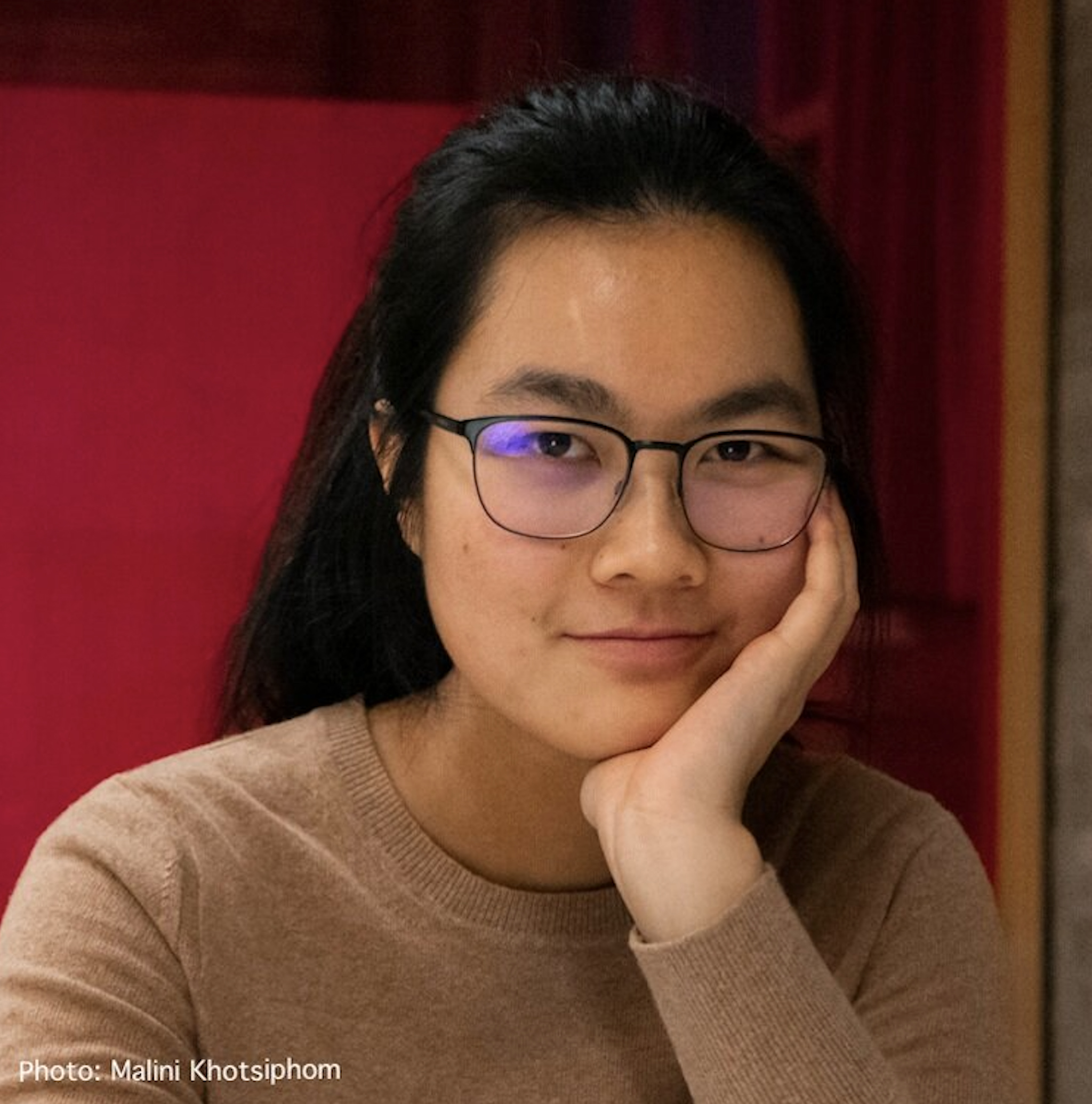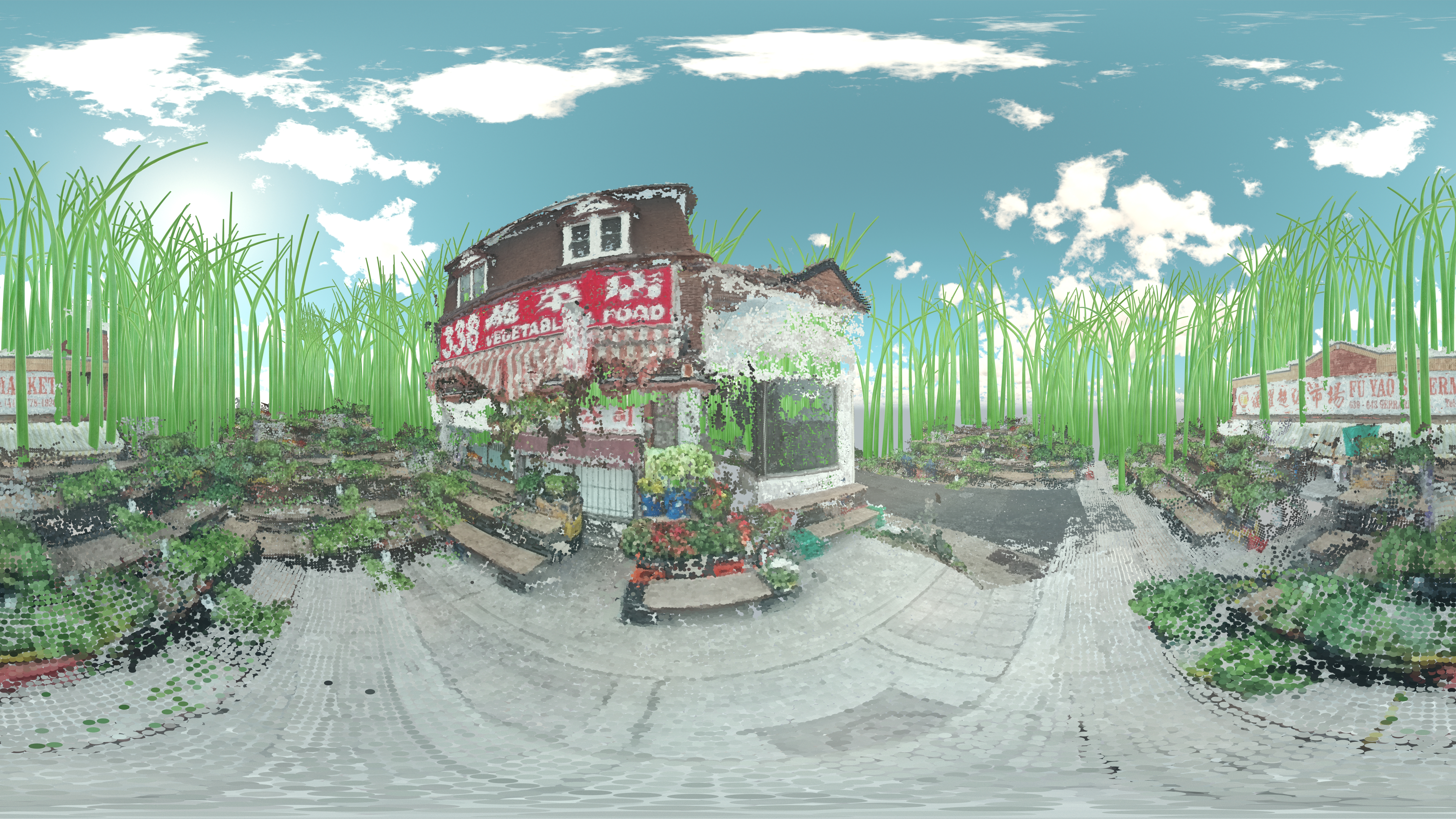
Reimagining ChinaTOwn: Speculative Fiction Stories from Toronto's Chinatown(s) in 2050
-
Click here (Zoom link) to register.
What will become of Toronto’s Chinatown(s)? Reimagining ChinaTOwn is a collection of eleven speculative fiction stories set in 2050 that boldly reimagines the future of Chinatown as a shared and collective vision.
Join us for a panel discussion with the contributors of Reimagining ChinaTOwn: Speculative Fiction Stories from Toronto’s Chinatown(s) in 2050.
Based on a workshop during Myseum Intersections 2020 and written during the early months of the COVID-19 pandemic, each story explores a personal relationship to Chinatown in the context of the rising anti-Asian sentiment and growing uncertainty for Chinatown’s future.
As the community authors speculate on the future in 2050, their stories offer a visionary act of resistance by uncovering new possible futures and bringing to light untold pasts. Chinatown itself is an illumination of the histories of diasporas for those who know how to see. It is both a place and a condition; between generations, between patterns of immigration, between identities, between others, between countries. By envisioning Chinatown anew, the stories create a radically more generous and expansive present moment by building a collective and shared vision for the future architecture of Toronto’s Chinatowns.
Speakers
Linda Zhang (organizer, creative direction, facilitator and copy editor) is a licensed architect, artist and educator. She is an assistant professor at Ryerson SID and a principal at Studio Pararaum. Her research areas include memory, cultural heritage, and identity as they are indexically embodied through matter, material processes and reproduction technologies. Zhang is a 2020 Artist in Residence at the European Ceramic Workcentre (EKWC) and was a recipient of the 2019 Multicultural Fellow at NCECA, the 2017-2018 Boghosian Fellow at Syracuse University SOA as well as a 2017 Fellow at the Berlin Center for Art and Urbanistics.
Erica Allen-Kim (facilitator) is an architectural historian who studies built landscapes of migration. Her forthcoming book, Building Saigon: Refugee urbanism in American cities and suburbs, is the first in-depth examination of the visual and material culture of Vietnamese resettlement. Her SSHRC-funded research, in partnership with the Chinatown West BIA, seeks to understand the legacy of racialized architectural and planning strategies for Chinatown residents, institutions, and businesses facing unprecedented development pressures in Toronto.
Biko Mandela Gray (facilitator) is an assistant professor of African American Religion at Syracuse University. His work operates at the nexus and interplay between continental philosophy of religion, theories and methods in African American religion. His research is primarily on the connection between race, subjectivity, religion and embodiment, exploring how these four categories play on one another in the concrete space of human experience. He also is interested in the religious implications of social justice movements. He is currently working on a book project that explores how contemporary racial justice movements, like Black Lives Matter, demonstrate new ways of theorizing the connection between embodiment, religion and subjectivity.
Michael Chong (author) lives a short walk from Chinatown. He grew up in the suburbs, where leaving the house means getting into a car because nothing is within walking distance and biking on the road is dangerous. He is currently spending his time baking bread, growing vegetables, and assembling IKEA furniture.
Eveline Lam (author) is a maker who moves between research, craft, and architectural work. She graduated from the University of Waterloo Master of Architecture program in 2017 and continues to practice illustration and ceramics in both traditional and digital mediums.

Amy Yan (author, illustrator and graphic design assistant) is a graduate of the Ryerson School of Interior Design in Toronto. She is interested in exploring the intersections between design and storytelling with her work, and in finding new ways to be able to convey narratives that can be experienced visually, emotionally and at all scales. Her passions include illustration, 3D prototyping and longboarding.

Amelia Gan (author) is a Malaysian-Chinese architectural designer who is currently based in Washington, D.C.


